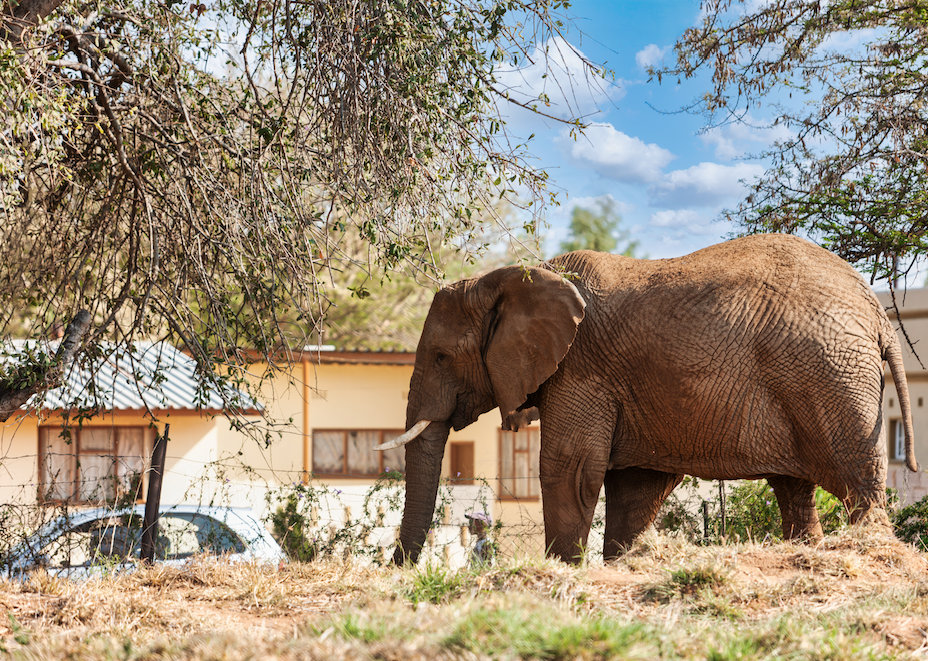“Are you a hunter?” asked the women seated in the middle seat, as I prepared to sit down, after stowing my backpack in the overhead storage. Actually I was not surprised by her question. I had purposely worn a Realtree camouflage shirt, embroidered with the DSC logo over my left shirt pocket.“Yes ma’am, I proudly am!” I replied as I removed my brown western hat.
She scooted as far away from me as her airline seat would allow. With a sour, disgusting look she replied, “I detest hunting and those who hunt and kill animals. It’s so disgusting and horrible.”
I smiled as I tightened my seat belt, all the while thinking I really don’t care all that much for people with a closed mind who have no understanding of life, wildlife and the perpetuation of wildlife habitat. I kept smiling.
“I suppose you also kill elephants!” said she noticing the elephant in the DSC logo. “They’re endangered! Hunting elephants is so wrong. They should do you to you what you do to those poor animals!”
I continued smiling and asked, “Ma’am, where do you live?” Before she could answer I continued, “I’ll bet you live in a very nice home with running water, rooms that are warm in the winter and nicely cooled in the summer, each of your children has their own room and you drive a very nice car. You’ve probably not gone hungry or thirsty a single day of your life. Your food comes from a grocery store and not a small garden behind your house. Bet too, you have a really nice landscaped lawn.” I continued as her eyes narrowed… “If that’s the case, good for you and your family! I’m proud of and for you!” I hesitated, then added, “We’re really blessed and fortunate, aren’t we?”
I could see she now was wondering where I was going.
“Yes ma’am! My wife and I are the same way. We each have our own car, live in a really nice house with a near constant temperature, regardless of what the weather is like outside. And we do get some of our food from the grocery store, but much of our meat comes from the animals I hunt and the fish I catch. Our garden provides some vegetable, but never quite enough.”
“You actually eat the animals you kill?” she immediately retorted again with a pained look on her face.
“Yes Ma’am we do. I harvest several deer each fall hunting season, then compliment the venison with pork from wild hogs I shoot and fish I catch. Venison is cholesterol free, also free of hormones and antibiotics injected in the chicken and red meat one buys at the grocery store. Same with the vegetables we grow. We very seldom use insecticides, so most of what we eat is all natural. And because we harvest our own meat and vegetables, guess what, our meals are healthier and taste better as well!” She was listening, finally!
“Have you ever been to Africa, real Africa and not an artificial national park?” she nodded in negative manner. “I have, including some of the back country, far outside of the city limits. Living there is not easy… You mentioned elephants. What if you, your husband and four kids (I had noticed she was wearing a necklace with a token for what I thought possibly were representative of her children), lived in thin-walled one room house, smaller than your master bedroom, no kitchen, no indoor plumbing, no air-conditioned cooled air during the summer. And only a fire when it was cold, for which you had to gather sufficient wood to keep your family warm but also to use for coals to cook on. If you were really fortunate maybe you had a couple of goats that produced milk which you and your family used, and offspring you occasionally got to feast on, or sold to someone else so you could buy clothes or food. Maybe if you’re really fortunate you have four our five chickens for eggs, but also to eat their offspring. Since there is no such thing as running water in your house, you have to walk two-miles oone way each day to pump water into a five-gallon bucket which you carry back home, hand-pumped from a community well.”
I could not really tell if things were soaking in or she was simply listening hoping I would shut up and no longer talk to her.
“Two days ago when you walked to get water, the elephants returned and pushed the hand-operated water pump over. Now there was no water available until it could be prepared.”
“Just before the elephants showed up again, your garden was looking beautiful, squash were just about ripe, your ten corn stalks each bore at least a couple of ears. You were so truly proud of your garden and the food it would supply your family for the next months.”
“Realizing there was no water from the well, you, thirsty and tired, started walking back home. The closer to your one-home, the louder was the trumpeting of elephants. They were obviously headed toward your garden. You took off running to get to your house to protect your children and your garden from the elephants. Screaming at the top of your voice you charge toward the thirty of more elephants walking toward your house and garden. They pay you no attention and keep advancing on your home. You run into your house gather up your three older children, the oldest 5-years of age, and the 6-month old baby they had been watching while you went for water. Back outside, you scream and hope the elephants leave.”
“One older cow, obviously the matriarch of the herd, raises her head, flat her ears in an effort to look even bigger, trumpets loudly and charges your way. You’re not sure whether to turn and run away or try to hide in your house. You’re in a quandary, last time the elephants were in your area, your best friend and her young son were trampled by elephants. He died, but she miraculously survived. Were your husband here, maybe he could help. He unfortunately is several miles away, helping that village dig a new water well. Amongst all the screaming and trumpeting, you throw your broom at the closest elephant, grab your two-year old daughter’s hand and beg your two older boys to run as fast as they can. You stay between the elephants and your children and run for the cover of several big trees, hoping they will provide protection for you and your children.”
“Once into the tall trees, you stop and look back at your house and garden. Several elephants of eating everything in your garden. Once your garden has been eaten and destroyed, they smell the vegetables you had already picked and put into the house for future family meals. Using their foreheads, the elephants push down the walls of your home, then eat the vegetables you had stored there.”
“Food gone, home destroyed, the elephants step a few more times on what is left of your house, then slowly shamble away….”
With that I quit talking and let her think! I notice her tears start falling.
“We live in a different world than those who have to deal with elephants on a daily basis. It’s hard for us to comprehend what that has got to be like. Were we in their shoes, we would look at elephants in a lot different way.” She nodded in agreement.
I waited a few moments then, “Africa is indeed far different than our world. Hunting plays such an important role in the conservation of elephants and other African animals. Do you realize the only countries where elephant still exist outside of national parks are those countries where elephants are hunted? If elephants in their native lands do not have an economic and real value, they disappear. Where hunting is allowed elephants flourish, hunting provides jobs, which equate to providing food for the local human population, not only from money that digs wells, pays for education of children, but also in terms of protein from the meat of elephants. Because there is real economic value from hunting, local populations tolerated some ‘interference’ from elephants and other wildlife. Hunting truly promotes life, rather than death.”
“Conservation promotes LIFE, Preservation promotes DEATH!!” Conservation is defined and is in the real world, the wise use of. Preservation preserve only one “thing” at the total expense of all other things, i.e. animals and wildlife habitat.” I’ve been on national parks in Africa that were established and are maintained simply for elephants. In the process of doing so they have increased elephant numbers to where they have destroyed what habitat was there. Elephants will push over trees, eat only one limb and move on to push over another tree and od the same. I’ve been fortunate to have visited national parks where elephants were “preserved”! Before the now protected elephants increased in number, many wildlife species, terrestrial, birds, reptiles, amphibians and plant communities flourished. Elephant populations increased, due to not being hunted or properly managed. Soon they destroyed the habitat for all wildlife. All other wild animals and birds either starved or moved if they were able to areas where there were no elephants. Today only elephants survive in those same areas, and even there, their numbers are down because there is no longer sufficient food available to suppor them. Some moved to different areas where they also destroyed the habitat there. Many died due to starvation. Preservation promoted and continues to promote death!’
Up to that point I had spent most of my time watching reactions from the woman I was primarily addressing. I had not paid attention to others sitting nearby who were listening to what I had said.
“Hunting promotes and is wildlife conservation, again the wise use of. Hunting creates healthy wildlife populations of all kinds and maybe even more importantly healthy habitats that supports all wildlife.”
“We can never forget essentially all life on Earth is dependent upon the death of another organism. Vegans and vegetarians kill what they eat no less than do predators or carnivores. Fruits, nuts and the like are after all simply embryos. Leaves are alive no different than the chicken, fish, red meat carnivores live on. If we are alive, we are so because we have killed so we can remain so. That’s simply life…”
Several within hearing of what had said were nodding approvingly. I knew there was a reason I wore a camouflage shirt with a DSC logo…
— Larry Weishuhn

